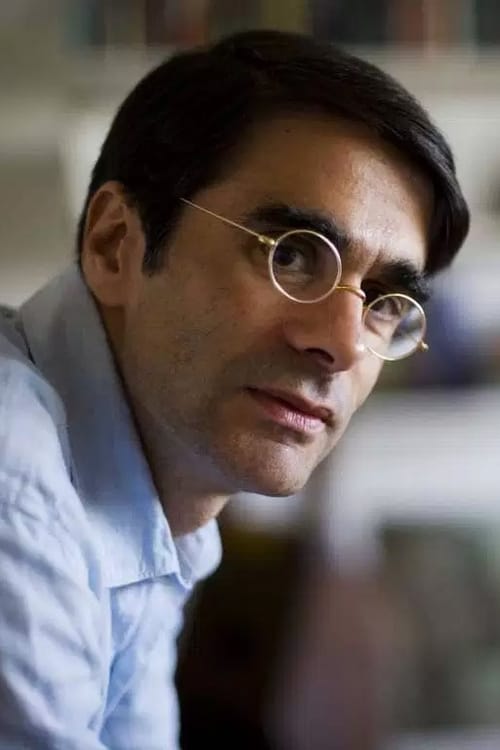João Moreira Salles
Nacimiento : 1962-01-01, Rio de Janeiro, Rio de Janeiro, Brazil
Historia
João Moreira Salles (Rio de Janeiro, born 1962) is a Brazilian documentarian and president of the Instituto Moreira Salles. In 2006, he founded the magazine Piauí. He has also taught courses on documentary at the Pontifical Catholic University of Rio de Janeiro and Princeton University.

Self
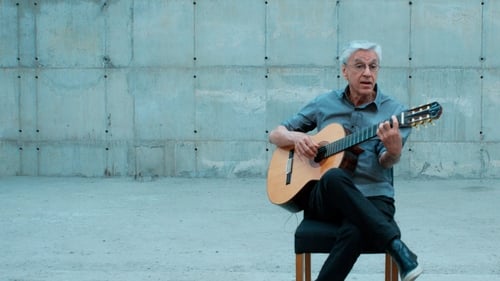
Producer
Brazilian singer-songwriter Caetano Veloso reflects on his imprisonment in 1968, during the military dictatorship.
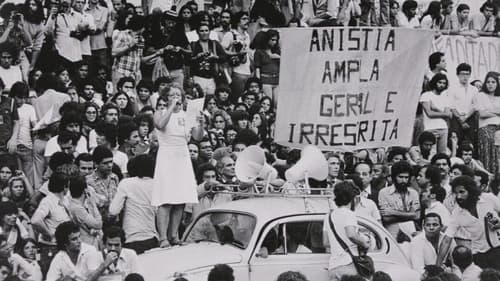
Producer
César Benjamin was arrested in August 1971 during student protests against the Brazilian military dictatorship. Although he was a juvenile, he was tried as an adult and sentenced to 13 years in prison. Thanks to the ardent campaigning of his mother Iramaya, working closely together with the Swedish branch of Amnesty International, he was released five years later.
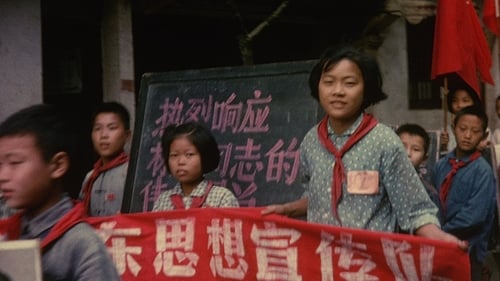
Writer
Documental que analiza y compara imágenes de las convulsiones políticas de los años sesenta. Desde el golpe militar en Brasil hasta la Revolución Cultural de China, desde los levantamientos estudiantiles en París hasta el final de la Primavera de Praga.

Director
Documental que analiza y compara imágenes de las convulsiones políticas de los años sesenta. Desde el golpe militar en Brasil hasta la Revolución Cultural de China, desde los levantamientos estudiantiles en París hasta el final de la Primavera de Praga.

Executive Producer
El tardío director Eduardo Coutinho se sienta y habla con jóvenes estudiantes brasileños en su último documental.
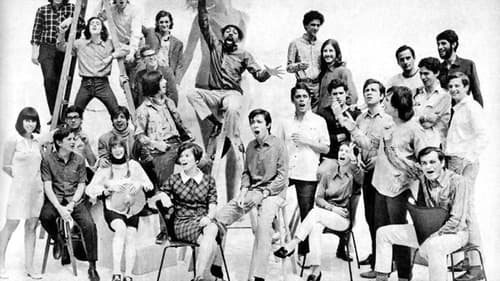
Executive Producer
If you thought TV shows in which audiences and juries judge musical acts were a relatively new phenomenon, you'd better think again. In the 1970s, such "festivals" were incredibly popular in Brazil. They were recorded before a live studio audience, and usually featured a number of elimination rounds. They also formed the springboard for the career of many a big-name star, such as Chico Buarque, Caetano Veloso, Roberto Carlos and Gilberto Gil. Appearing on such a program was no cakewalk, however: audiences could be as wild in their condemnation as in their appreciation of an artist. Extensive archive footage (including performances and behind-the-scenes interviews) from a turbulent final of the Festival of Brazilian Popular Music one evening in 1967 paints a fascinating picture, not only of the transformation of Brazilian music into real "festival" music, but also of a society starting to buck against the yoke of military rule.

Executive Producer
Six people, one family, ten years later. Dois Tempos resumes the narrative of the lives of the Braz, created in 2000, in the documentary A Família Braz. In 2010 the same directors return to the same house to update the portrait of the six characters. A decade later, what has been done with your expectations of the past, how you live life in the present and what to provide for the future.

Executive Producer
Continuing the exploration of the thin line between truth and performance, Eduardo Coutinho turns his attention to the drama generated during rehearsals for the Galpão Theater Company’s performance of Chekov’s The Three Sisters. As he shoots scenes from the play, Coutinho attempts to capture the very moment in which reality becomes fiction and vice versa—whether through the actors’ bodies and words or in backstage scenes of a performance that will exist only on film.
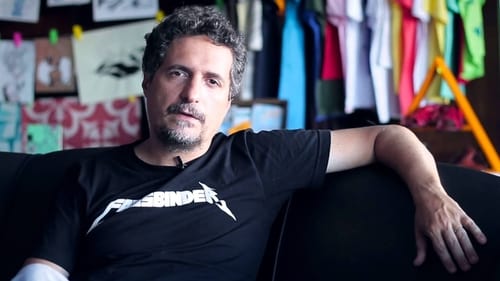
Self
Seventy critics and filmmakers discuss cinema around the conflict between the artist and the observer, the creator and the critic. Between 1998 and 2007, Kléber Mendonça Filho recorded testimonies about this relationship in Brazil, the United States and Europe, based on his experience as a critic.
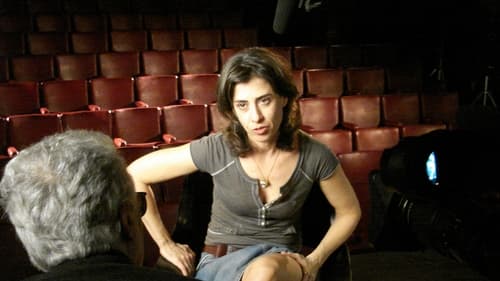
Executive Producer
Following a newspaper ad, ordinary women tell part of their life stories to director Eduardo Coutinho, which are then re-enacted by actresses, blurring the barriers between truth, fiction and interpretation.

Screenplay
Documentary about Santiago, a peculiar man who used to work for the director and his parents as a butler. The material was filmed in 1992 but, for some strange reason, the director felt he couldn't edit it and put it aside. In 2005 he remembers the unfinished film and starts its edition.

Director
Documentary about Santiago, a peculiar man who used to work for the director and his parents as a butler. The material was filmed in 1992 but, for some strange reason, the director felt he couldn't edit it and put it aside. In 2005 he remembers the unfinished film and starts its edition.
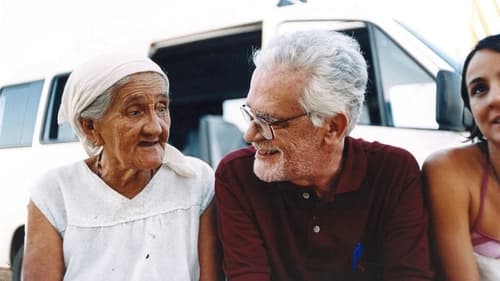
Executive Producer
A film that began from zero. Without any previous research, characters, locations or established themes, a film crew arrives at the Paraiba backlands in search of people with stories to tell. In the town of São João do Rio Peixe, they discover the Araçás Farm, a rural community where 86 families live, the majority connected by family ties. Thanks to the mediation of a young woman from Araçás, the residents – consisting mostly of elderly people – tell their life stories, marked by popular Catholicism, hierarchy, a sense of family and honor. A world on the verge of disappearing.
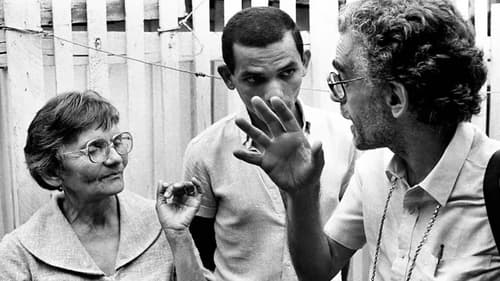
Executive Producer
In 1979 and 1980, workers in São Paulo’s metallurgical industry organized a series of strikes that changed the face of union politics in Brazil. In the process, they established the groundwork for Brazil’s Worker’s Party and brought to the national spotlight union leader Luís Inácio Lula da Silva. Metalworkers is a feature-length documentary about the stories of 21 of these workers who took part in these historic strikes but remain in relative anonymity today.

Himself
Intermissions follows Lula during the hectic election campaign for the presidency in 2002. Lula gave filmmaker João Moreira Salles and his crew complete access, and the result is an intimate documentary of what went on behind the scenes. Sometimes, Lula is afraid that he will lose his freedom as president. Combined with Lula's candor, the film's observational style provides some very special insight into one of Brazil's most popular leaders.

Director
Intermissions follows Lula during the hectic election campaign for the presidency in 2002. Lula gave filmmaker João Moreira Salles and his crew complete access, and the result is an intimate documentary of what went on behind the scenes. Sometimes, Lula is afraid that he will lose his freedom as president. Combined with Lula's candor, the film's observational style provides some very special insight into one of Brazil's most popular leaders.

Director
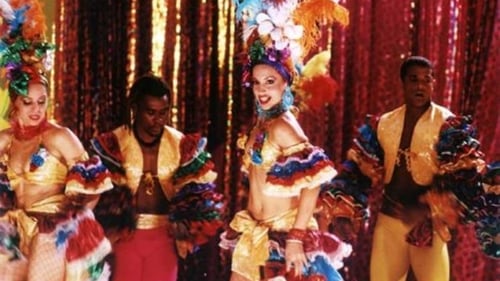
Key Hair Stylist
Isolda (Irene Ravache), tía de Dolores (Laura Ramos), envía a su sobrina a La Habana 5000 dólares desde su casa en Río de Janeiro, para que pueda montar el restaurante que tanto desean ambas. Dolores no sabe que los dólares viajan camuflados en el tacón de unos zapatos de baile. Los zapatos llegan a La Habana, pero son canjeados una y otra vez por diversos artículos y distintas personas, sin que nadie sepa lo que esconden en su interior. Cuando Dolores se entera, intenta recuperarlos a toda costa, revolviendo toda La Habana, ayudada por su amigo José (Jorge Sanz) un buscavidas español que se hace pasar por cubano para sobrevivir y Mercedes (María Galiana) antigua ama de llaves, diabética y algo transtornada.

Director
João Moreira Salles' "Nelson Freire" is a film-documentary about the great Brazilian pianist, who is certainly among the five great pianists of the world today. Nelson Freire is a quite discreet / shy person and João Salles respected this feature of his personality. During almost two years he followed the pianist around the world to compose a film, made of 31 thematic sections to cover the many aspects of the life of this genius of the piano.

Producer
"Master" is the name of a 12-story apartment building in Copacabana, Rio de Janeiro's neighborhood for nightlife. Over the course of four weeks in 2001, Eduardo Coutinho's film crew rented one of the 276 apartments and used it as home base to make a film about the building's residents. We get to know the building manager, who succeeded in turning the troubled residence into a family complex within just a few years. Using interviews and a few stolen moments in the corridors of the building, Coutinho explores this world. Most of the building's residents come from the lower middle class and are just getting by, but that's just about the only thing they have in common - so many people, so many stories, sometimes told in a self-confident tone, sometimes with averted eyes. The fact that a film crew is interested in their stories puzzles some of them. Hope, fear, dreams, memories, love and loneliness all appear from behind the doors of this average apartment building.

Writer
Documentary about urban violence in Brazil, especially in Rio de Janeiro. Policemen, drug dealers, and shantytown dwellers get trapped into a daily war that knows no winners.

Director
Documentary about urban violence in Brazil, especially in Rio de Janeiro. Policemen, drug dealers, and shantytown dwellers get trapped into a daily war that knows no winners.

Director

Director

Writer

Director

Director

Director
Short film in honor of the poet

Writer
A look into the 25 years of career of famous musician Chico Buarque and his influence in Brazilian culture.

Writer
A portrait of conteporary China from Tai-chi-chuan to chinese arts.

Director
A portrait of conteporary China from Tai-chi-chuan to chinese arts.
